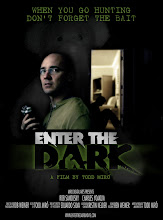Google Adsense is responsible for some of the ads you see down the right side of my page. Most times they actually have some relevance to my content. In the year and a half since I started yammering away on this blog I've had roughly 450,000 pageviews, which I imagine puts me in the upper-middle of traffic for all blogs. Now, I'm not trying to brag here, it's just that the reality is that the vast majority of folks who start a blog never get viewed by anyone other than their friends or family. And there's absolutely nothing wrong with that.
So those 450,000 pageviews are way more than I ever had expected, and mostly due to one crazy rant on Hollywood color grading.
Go figure.
Anyway, 42 folks have actually clicked on one of those Google-supplied ads (most of them probably just an accidental mis-click).
So what have I been paid so far from Google?
Nothing.
Zip.
Nada.
All those eyeballs, and 42 actual clickthroughs have netted me zero dollars.
Now, that's not to say I will never get paid... Here's the dealio:
Google is keeping $50.78 of my hard-earned money hostage. Here's how they justify that. Once you earn $10 for them, you get the privilege of filling out a form to indicate how you'd like to be paid from them. This sounds very exciting. Most bloggers will never even get to this point. However, when you read the fine print at the bottom, a shocking bit of tom-foolery is revealed.
They will not send you any money until you have earned $100 dollars. Let me state that again. YOU WILL RECEIVE NO PAYMENTS UNTIL YOU HAVE EARNED $100! Now, the vast majority of bloggers will never ever, ever in a thousand years reach this point. And Google knows this. The corporation that prides itself with the motto "Do No Evil" is doing one of the most reprehensibly slimy accountant moves ever. How many millions of "virtual" dollars are sitting in accounts that will never come to fruition? Who knows? Maybe I'll buy some Google stock and demand the answer.
All I know is I'll probably never get to $100, so my $50.78 is currently being held hostage in some weird accountant's wet-dream limbo state.
So, "Is Amazon any better?" you might ask. Well, they used to be. Since I signed up with them, some 18 months ago, they have actually sent me payments totaling $49.23. Now, that's not something I can pay my mortgage with, but at least they paid me!
However, that all ended a couple of weeks ago thanks to my Governor, Jerry Brown. He had the incredible gall to actually ask that Amazon start paying their fair share of sales taxes - you know, like what real businesses have done for like, forever. So how did Amazon respond? Well, like this:
For well over a decade, the Amazon Associates Program has worked with thousands of California residents. Unfortunately, a potential new law that may be signed by Governor Brown compels us to terminate this program for California-based participants. It specifically imposes the collection of taxes from consumers on sales by online retailers - including but not limited to those referred by California-based marketing affiliates like you - even if those retailers have no physical presence in the state.
Now, I figured this was just a threat to get California to back down, you know typical bull$#!t posturing. Except the next day I got this email:
Unfortunately, Governor Brown has signed into law the bill that we emailed you about earlier today. As a result of this, contracts with all California residents participating in the Amazon Associates Program are terminated effective today, June 29, 2011. Those California residents will no longer receive advertising fees for sales referred to Amazon.com, Endless.com, MYHABIT.COM or SmallParts.com. Please be assured that all qualifying advertising fees earned before today will be processed and paid in full in accordance with the regular payment schedule.Wow - way to go Amazon. You really showed Gov'ner Brown. And you made a total dedicated convert to your anti-sales tax views by one of your hard-working associates.
Not.
Oh well, I guess those starry-eyed dreams of being able to rake in the big bucks on the web have finally been put to rest. Now I can just continue to rant for my own amusement and sanity.
And Google and Amazon...
Oh yeah... Thanks for nothin'!
















